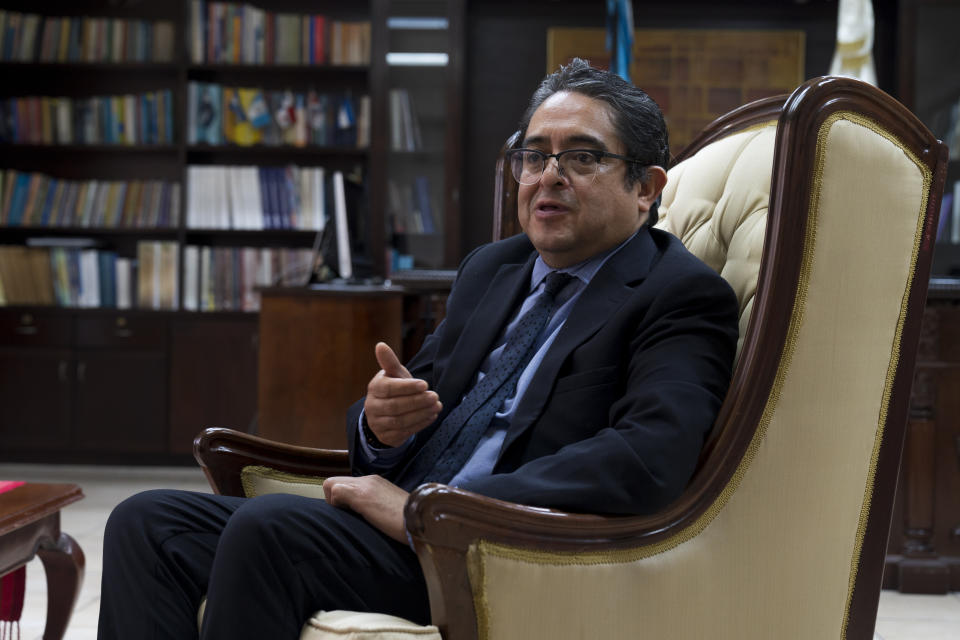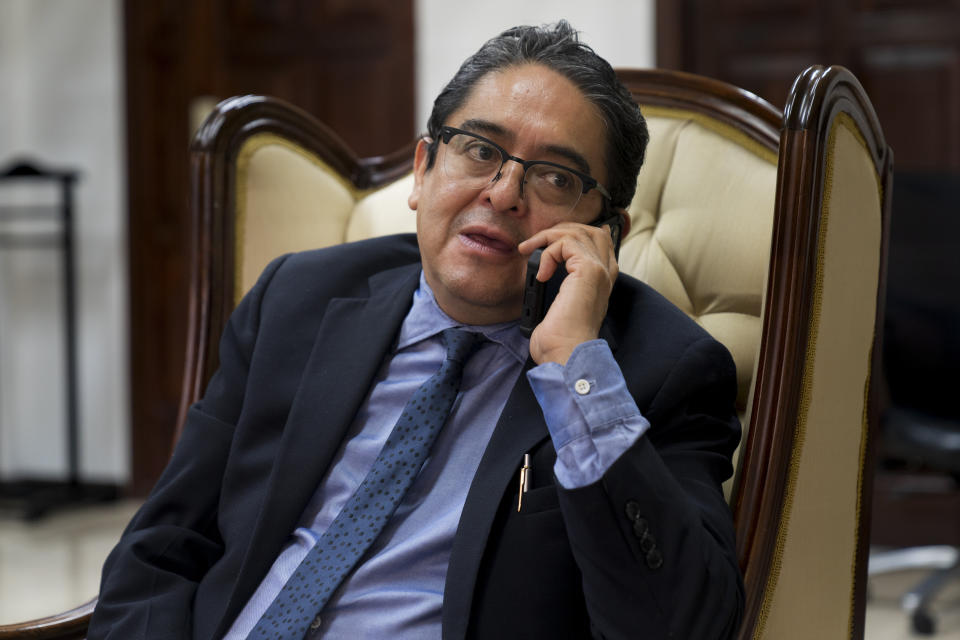Another anti-graft figure leaves top post in Guatemala
GUATEMALA CITY (AP) — One of the last remaining official pillars of Guatemala's effort to root out corruption leaves his post this week, following the ouster or departure of a series of other anti-graft campaigners who had shaken the Central American nation's governing class.
Jordán Rodas Andrade was a relatively little-known law professor from a university in Guatemala's sixth-largest city when he was elected as human rights prosecutor by Congress five years ago. He surprised many by allying himself with an anti-corruption effort that targeted many of the nation's most powerful figures.
“People are fed up with corruption,” Rodas said in an interview this week as his five-year term neared its end on Saturday. The ombudsman's post is meant to protect Guatemalans' constitutional rights — a task that can bring it into conflict with other officials.
His repeated court efforts to block government actions so irked then-President Jimmy Morales that he dubbed Rodas “Amparito” — “little injunction.” One of those temporarily blocked Morales’ attempt to expel the leader of the United Nations anti-corruption mission in Guatemala, whose investigations were touching some of Morales’ relatives.
In 2019, Morales finally forced out the U.N.-backed anti-corruption mission that had worked with local prosecutors to root out graft and had led to the imprisonment of several senior officials, including former President Otto Perez Molina.
Under current President Alejandro Giammattei, several Guatemalan prosecutors who worked with that mission and judges who handled those cases have been forced out.
Juan Francisco Sandoval, who led the Attorney General's anti-corruption office was fired in July 2021 and fled to the United States. He said his office had started investigating Giammattei. Authorities later announced they had an order to arrest him. In response, the U.S. government suspended cooperation with the Attorney General's Office.
Rodas said that Giammattei is obsessed with power and has succeeded in co-opting other branches of government and concentrating it “as if he were an emperor.”
“I thought that we had hit bottom with Jimmy Morales, but no. Surprise!,” he said. Giammattei has denied allegations of corruption and bristled at U.S. pressure to choose a different attorney general.
Congress has chosen Alejandro Córdova as Rodas' successor. A former Supreme Court justice, he had been flagged by the Attorney General’s anti-corruption office for meeting with a businessman who has since been arrested for alleged corruption and influence peddling involving selection of judges. Córdova was not investigated. He has the support of the president and the ruling party’s lawmakers.
Rodas’ departure comes three months after Giammattei reappointed Attorney General Consuelo Porras, who has been a key figure in prosecuting or firing anti-corruption crusaders. The U.S. government canceled her visa and put her on a list of allegedly corrupt actors in the region.
Jorge Santos, coordinator of the Guatemala Human Rights Defenders Protection Unit, a nongovernment organization, said Rodas had expanded the ombudsman's reach, establishing offices to investigate disappearances, especially of people at the hands of security forces, and to defend freedom of expression and human rights activists, Santos said.
“The challenge for the new ombudsman is his great closeness to figures in power and whose impunity continues,” he said. “We hope to see his independence from those figures.”
Rodas' independence gained him political prominence, as well as a long list of enemies. Opponents in Congress made several failed attempts to start a process that could have removed him from office. And lawmakers held his office’s funding hostage for months making it impossible to pay his staff’s salaries.
Rodolfo Neutze, a lawmaker from the conservative Commitment, Renewal and Order party, said Rodas had failed to strengthen the institution and divided Guatemalan society.
“At the present time, many people believe that the ombudsman office is at the service of the leftists or the criminals or anti-family ideas,” Neutze said. “He did some good things that nobody knows about, but he will be remembered for supporting causes that polarized the country.”
His outspokenness has come with threats, from an ultra-right group defending soldiers accused of crimes against humanity and from targets of corruption investigations who have warned that he — like several former anti-corruption prosecutors — will be the one charged with crimes.
Rodas said he worries for his family’s well-being, but not for himself. He didn't rule out entering politics, but has not announced anything.
“I don’t need to go into exile. When I finish I want to dedicate myself to academia where I come from. There’s going to be Jordán for awhile.”

 Yahoo Finance
Yahoo Finance 









